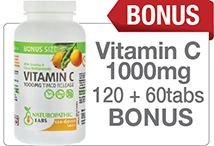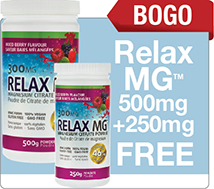Bioflavonoids
Updated Apr. 08th, 2024 | Read Time: 5 Minutes | What You Will Learn:
- Top Health Benefits of Bioflavonoids
- Circulatory System
- Antioxidants
- Anti-Inflammatory and Allergies
- Signs of Bioflavonoid Deficiency
- Foods High in Bioflavonoids
- Top 5 Bioflavonoid Varieties
- 1) Diosmin
- 2) Hesperidin
- 3) Quercetin
- 4) Rutin
- 5) Pycnogenol
- Shopping For Bioflavonoid Supplements & Safety Information
Flavonoids are a group of molecules that give colour to many fruits and vegetables. They produce yellow or red/blue pigments designed to attract pollination insects. These molecules are also known as bioflavonoids, and even sometimes as vitamin P. They are found in almost all plants, in varying amounts.
Top Health Benefits of Bioflavonoids
Circulatory System
Vitamin C works closely with bioflavonoids in the body. The two are a particularly effective combination for supporting capillary and vascular health. They help strengthen and protect collagen in your body, preventing capillary fragility. When your capillaries are fragile, it can result in varicose veins, easy bruising, bleeding gums and in severe cases, hemorrhaging. Therefore, bioflavonoid foods and supplements can help in the treatment and prevention of conditions like Varicose Veins, and Poor Circulation.
Antioxidants
Bioflavonoids are particularly well known for their antioxidant activity. Antioxidants help to neutralize free radicals, which are unstable molecules with an unpaired electron. These free radicals are extremely reactive and damage surrounding cell membranes, fats, and fat-soluble vitamins and nutrients.
You encounter free radicals through environmental exposures, such as cigarette smoke, air pollution, processed foods, and ultraviolet radiation from the sun (UV rays). Bioflavonoids in particular are successful at preventing free radical damage and oxidation of LDL (“bad”) cholesterol, as well as increasing the antioxidant capacity of other nutrients. Bioflavonoids are showing great promise for use in the prevention and treatment of heart disease and unhealthy cell growth because of these antioxidant effects.
Anti-Inflammatory and Allergies
Several bioflavonoids have been shown to inhibit pro-inflammatory molecules in the body. This means that they can prevent the synthesis and action of biological markers that disperse around the body during an inflammatory response and signal the need for immune cells to migrate to the area. This action allows bioflavonoids to prevent and mitigate inflammatory responses and allergic responses.
Signs of Bioflavonoid Deficiency
A diet that does not contain sufficient fresh fruits and vegetables can result in a deficiency of bioflavonoids. However, in today's agriculture, the soil is more nutrient-poor; therefore, our food doesn't contain adequate amounts of nutrients as it used to, and that's why many consider taking nutritional supplements.
This can lead to deficiency symptoms such as:
- Easy Bruising
- Nose Bleeds
- Varicose Veins
- Hemorrhoids.
Foods High in Bioflavonoids
There are a wide variety of food sources of bioflavonoids. Some of the best food sources include:
- Citrus Fruits
- Berries
- Onions
- Tomatoes
- White Tea
- Green Tea
- Red Wine
- Seabuckthorn
In supplements, bioflavonoids are available in powder or capsule form. They are frequently offered in combination products with several bioflavonoids together or in combination with vitamin C. They can be purchased individually as well. Many green or multivitamin combinations will include many bioflavonoids for their antioxidant benefits.
Top 5 Bioflavonoid Varieties
Certain bioflavonoids have affinities for specific organs and/or disease processes. Ensuring adequate intake of sources of these nutrients can help to prevent and treat certain illnesses. Let's take a look at 5 popular bioflavonoid sources.
1) Diosmin
One of the major flavonoids found in citrus fruits is known as diosmin. It is often used in combination with hesperidin to support veins and arteries. This can help in the treatment of hemorrhoids, varicose veins, and ulcers due to venous stasis. This bioflavonoid has also been found to help protect the liver from toxic insults and to prevent the development of post-surgical lymphedema in breast cancer patients.
2) Hesperidin
Another common citrus bioflavonoid is hesperidin. As mentioned above, it is frequently used in combination with diosmin for the support of vascular health. Certain forms of hesperidin have been found to protect against arteriosclerosis. Hesperidin has also been found to be a strong antioxidant with a particular affinity for the brain and liver. When combined with vitamin C, hesperidin has been shown to successfully reduce the frequency and severity of hot flashes in menopausal women. It can also help to protect against loss of bone density with aging.
3) Quercetin
One type of immune cell found just beneath our skin called mast cells is quercetin. It is responsible for releasing histamine in response to contact with an allergen. The presence of histamine signals other immune cells, which results in the symptoms of allergies such as a runny nose and itchy watery eyes. The flavonoid quercetin has been found to help stabilize mast cells, making them less sensitive to allergic triggers.
4) Rutin
Rutin is the precursor to quercetin that is found in a variety of foods such as apricots, asparagus, cherries, prunes, and citrus fruit rinds. It is both an anti-inflammatory and a blood-thinning agent. It strengthens the blood vessels and protects the body from oxidized LDL (“bad”) cholesterol. This makes it particularly beneficial to cardiovascular health.
5) Pycnogenol
This particular type of bioflavonoid has been shown to help strengthen and repair tissues made of Collagen. Pycnogenol helps to protect blood vessels, skin and connective tissue. It can help to protect against cardiovascular disease and eye conditions like macular degeneration and diabetic retinopathy. Like other bioflavonoids, pycnogenol is also a strong antioxidant and anti-inflammatory.
Shopping For Bioflavonoid Supplements & Safety Information
Although rare, it's important to note the potential side effects of bioflavonoid supplements. They can include blurred vision, abnormal heart rate, headache or pounding in ears, dizziness, skin redness or itching, swelling, pain or heavy feeling in legs or feet. If you notice any of these side effects discontinue use and speak to a health care provider before adding supplements if you are already taking medications or other supplements.
When shopping for a bioflavonoid supplement, be sure to select a trusted brand known for making high-quality products. Read the label to see if they use pure ingredients, and what fillers are used and try to select products that use organically sourced materials when possible. If you need help with your selection, our knowledgeable team would be happy to help.























Hello, I would like to ask if the tomato juice must be fresh, or can I buy it in the store? if there will still be bioflavonoids?
Hello,
Thank you for your comment and question, we are glad you're enjoying our articles. Tomato juice is best if it's natural, meaning if buying in the store you will want to look for a product that is 100% Tomato juice and doesn't have added salt or sugar.
Today’s fruits and vegetables have depleted substantially in naturally occurring nutrients and as such I rely on supplements that can boost the lack of nutrients. For Bioflavonoid, my go-to is Sisu Ester C which is vitamin C with added bioflavonoid. I have been taking this supplement daily for many years and feel it works for me. Besides Vitamin C is also a good in many areas. I purchase this product from National Nutrition and usually get a good 2 for 1 deal on these products.
Hello Roger,
We love hearing about your experience with natural health supplements and products. Sisu Ester C is a great vitamin c supplement and is favoured by many. Another form of vitamin C you may be interested in reading about it liposomal, you can read the article here:
https://www.nationalnutrition.ca/articles/supplements/supplement-articles-liposomal-vitamin-c/
Stay well!